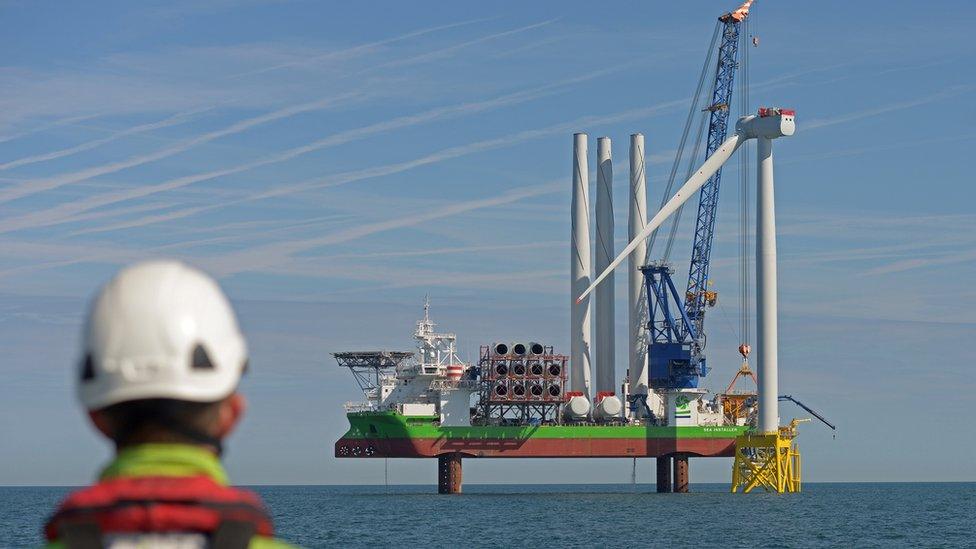COP26: East Anglia 'a lot to win, a lot to lose' at climate summit
- Published
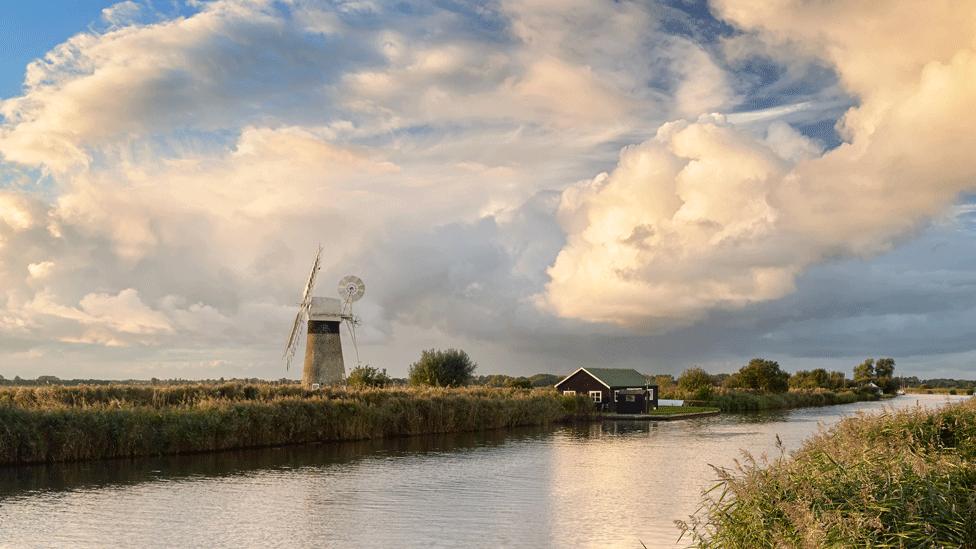
East Anglia relies on its natural landscape - including the Broads in Norfolk - for tourism
East Anglia has "a lot to win and a lot to lose" when world leaders meet next week to discuss how to tackle climate change, a research unit has said.
The driest region in the UK, the East is the most vulnerable to global warming, according to the Tyndall Centre for Climate Change in Norwich.
Asher Minns, executive director, said the area was also "uniquely placed" to create its own energy and green jobs.
"It's an opportunity for better living," he said, ahead of COP26, external.
The COP26 conference will see countries from around the world set out their plans to cut carbon emissions by 2030.
The East region has long-experienced dry, hot summers and lower rainfall, with rain tending to fall "more intensely", leading to flooding.
Being a largely agricultural area, which also relies heavily on its "relatively unspoilt" natural landscape for tourism, makes it vulnerable to weather extremes.
"But there is another aspect to it - we've got some of the poorest and some of the wealthiest people in society," said Mr Minns, based at the University of East Anglia.
"We are a microcosm of the world."
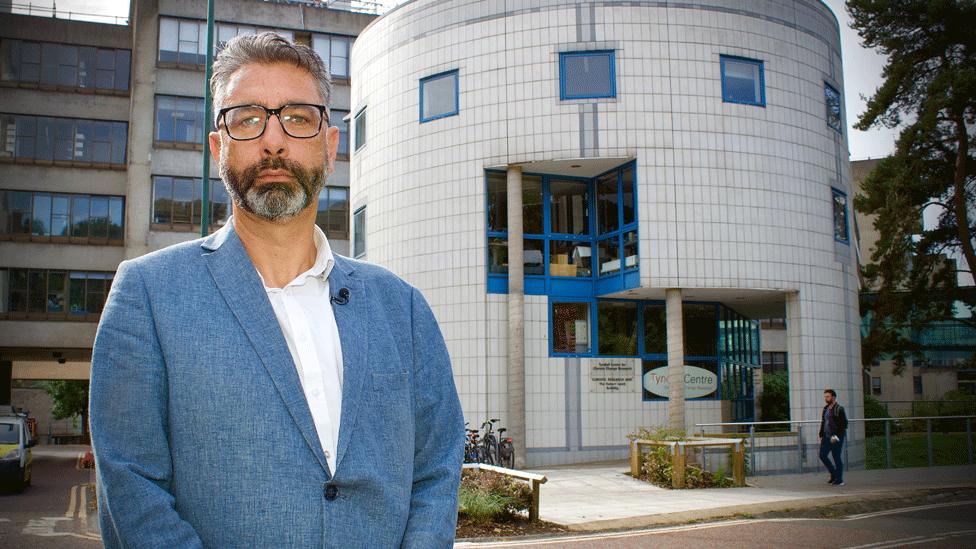
Asher Minns said East Anglia was in a good position to effect the change needed to make a difference
He said there needed to be a determination from the wealthier countries and wealthier communities about their impact on the environment.
"Richer people are frequent flyers, they have bigger houses, which need more heating, they are constantly buying stuff, which has a footprint.
"We're a big region, so people obviously have to reply on transport to get around and because of that, 40% of our emissions come from transport, while the national average is about 30%.
"We need to be smarter in the way we travel, by sharing journeys, upgrading to a better car if possible, using public transport when we can."
He added East Anglia was in a great position to help drive greener ways of living.
'Think differently'
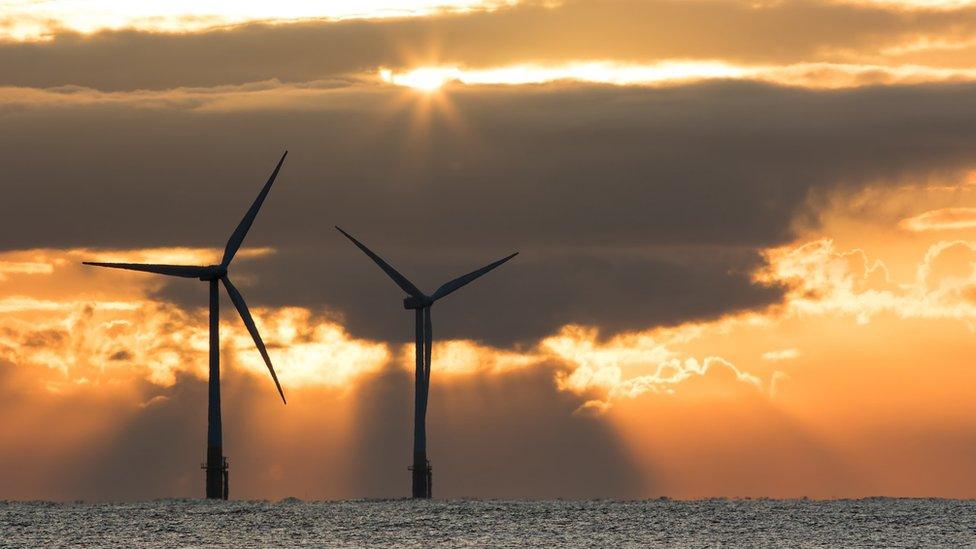
The East Anglia Zone of offshore windfarms, when complete, could comprise 1,200 turbines
"One of the reasons I like to work quite hard on engaging people with climate change in this region is because we have a lot to win and a lot to lose.
"The thing we can all do is to move over to a green tariff that has a lot of renewable energy in the electricity that you are using, then you are driving the change you want to see.
"It's particularly relevant to this region because we can all see the wind turbines and the solar panels in the fields.
"So you're putting into the local economy here, creating jobs, which is very different to paying for fuel from far away."
With big plans for more housing developments in East Anglia, he added that it should be "obligatory" to include heat-pumps or other efficient systems which do not rely on fossil fuels.
"We need to think differently about how we use energy, and where our energy comes from.
"This region is uniquely placed to be create its own energy, keeping that money in the economy, creating jobs and cut itself off from other things happening in other countries, far, far away.
"It worries me that people get down in the dumps [about climate change], it's an opportunity for better living and better jobs and that's what the decision makers and politicians need to be doing.
"They have to be completely pro-environmental and make everything happen for a low carbon future and resilient to the impacts of climate change."

Find BBC News: East of England on Facebook, external, Instagram, external and Twitter, external. If you have a story suggestion email eastofenglandnews@bbc.co.uk, external
- Published15 November 2021
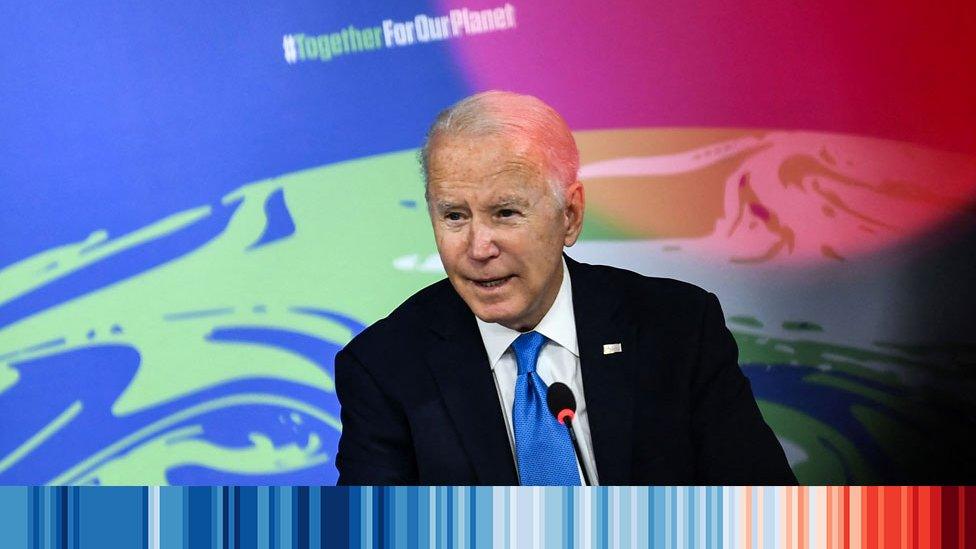
- Published18 February 2021
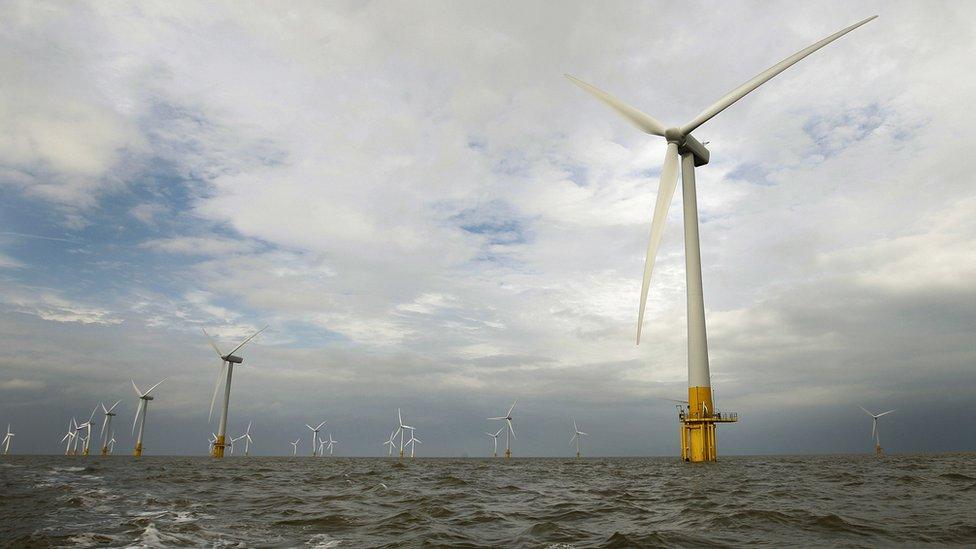
- Published28 June 2019
